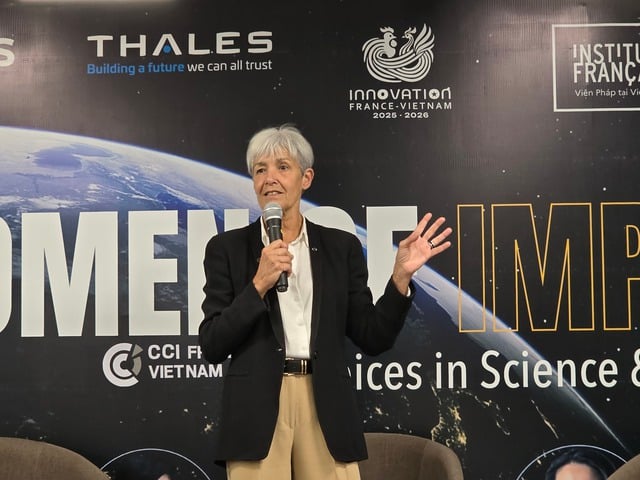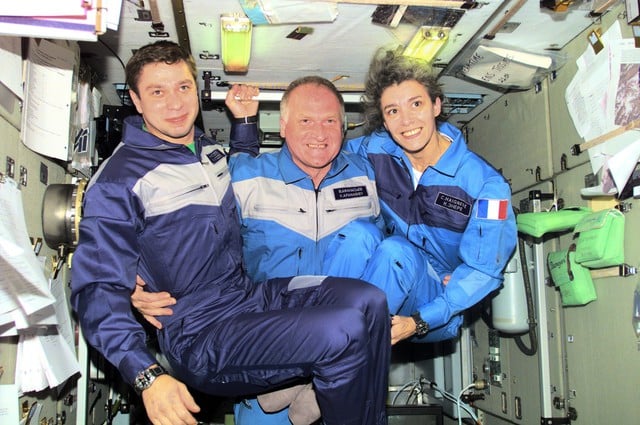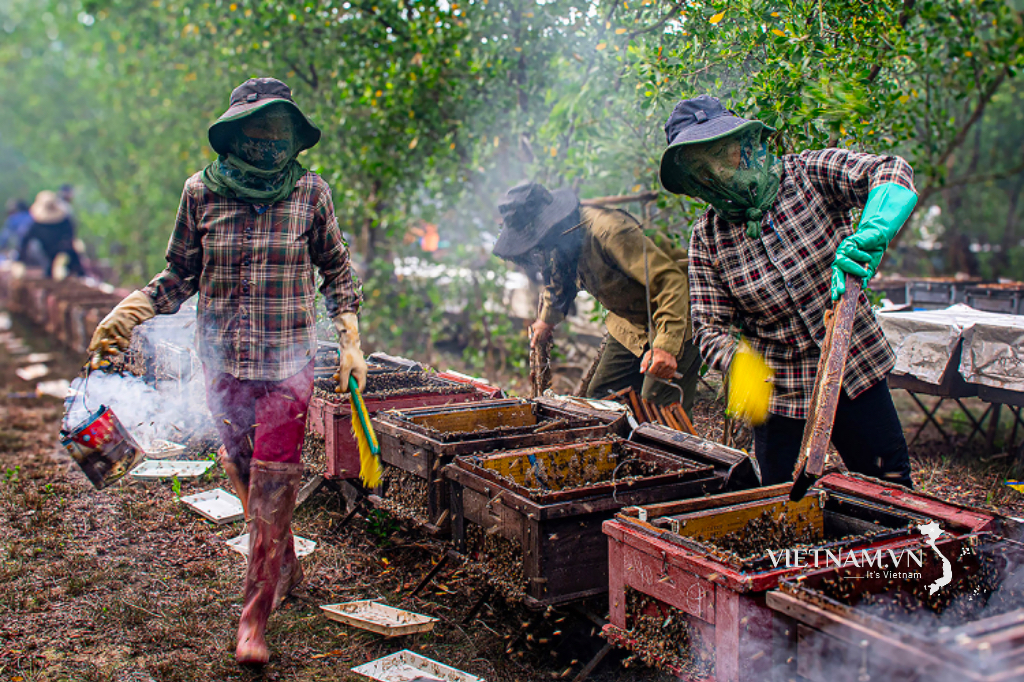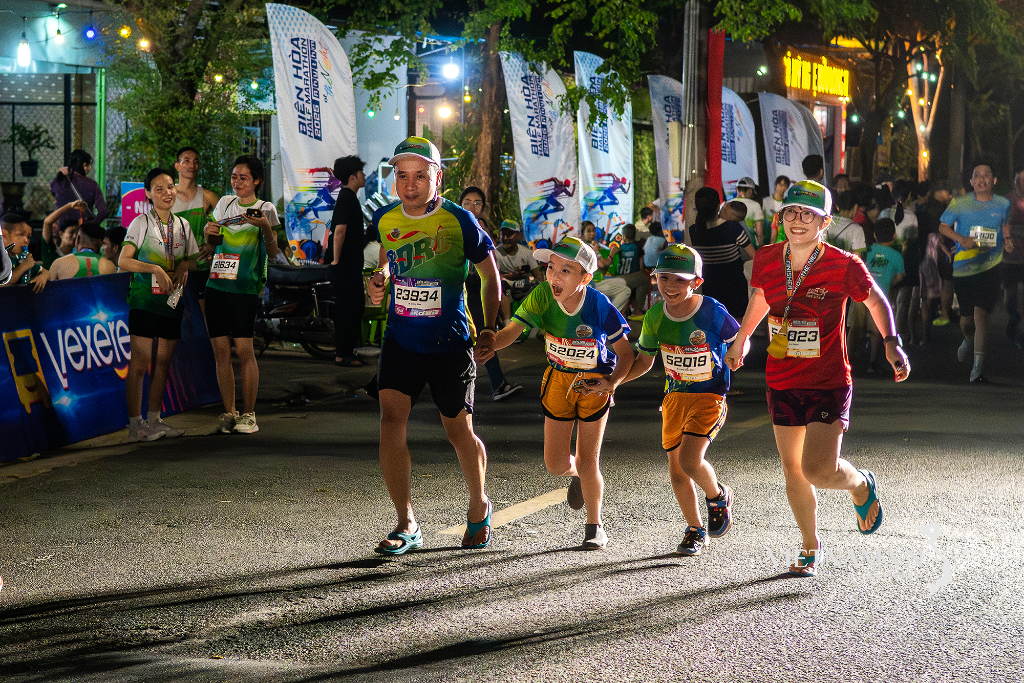To briefly describe post-secondary education, the French typically use the formula "baccalaureate + number of years". For example, "baccalaureate + 3" is a bachelor's degree, "+5" is an engineering/master's degree; "+8" is a doctorate. Ms. Haigneré is known by the nickname… "baccalaureate + 19" because she continued her studies even after earning her doctorate in medicine and becoming an orthopedic surgeon at Cochin Hospital (Paris).

Female astronaut Claudie Haigneré at a panel discussion in Ho Chi Minh City.
Photo: Lan Chi
Speaking to Thanh Nien newspaper on the sidelines of the "Inspiring Women" seminar, jointly organized by the French Institute in Vietnam and the French Chamber of Commerce and Industry in Vietnam (CCIFV) in Ho Chi Minh City on the evening of September 25, she explained her "excitement to learn": "As a child, I was always a curious girl who loved to explore the unknown. I read a lot and always wanted to 'venture' beyond what I already knew, so I always wanted to learn. I learned quite easily, so during my high school years, I studied English, Latin, Greek, and Spanish simultaneously in foreign languages."
I almost became a physical education teacher.
Having skipped two grades and consistently ranking first in her class, Haigneré earned her high school diploma before turning 16. During her high school years, her greatest passions were school and sports . After intense hours of studying, this brilliant student would release her energy and find balance by sweating it out on the gymnastics training ground and competing.
With her high school diploma in hand, Haigneré initially wanted to enroll in the French National Institute of Sports (INSEP) to study gymnastics or physical education coaching, but at that time, INSEP did not accept athletes under 18. Therefore, to avoid wasting two years waiting to reach the age limit, she decided to switch to studying medicine at the University of Dijon, reasoning that subjects like physiology and anatomy would be very useful for her future career as a physical education teacher.
This change became a crucial turning point for Ms. Haigneré: "My first year of medical school was very exciting, because in addition to the knowledge of general subjects like mathematics, biology, and statistics, I also got to explore the environment of healthcare. At the end of my first year, in the most important and selective exam of the French medical training system, I passed with top marks, and decided to pursue this profession."
Her love for sports and the excitement of competing remained, so she chose to become a musculoskeletal physician. Not stopping there, Haigneré also earned specialist degrees in sports medicine and aerospace medicine. "You can see the connection in my 'adventure' of acquiring knowledge: from the desire to better understand the human body while striving for high achievement in sports; to the 'curiosity' about the human body in a state of weightlessness. This is an adventure where I increasingly want to deepen my knowledge."
Seize the opportunity, and succeed.
As an adventurous and inquisitive person, one event naturally left a deep impression on Haigneré's childhood: the first human steps on the moon in 1969. This memory remained vivid, so when she read the announcement in 1985 seeking astronaut candidates at the French National Center for Space Research (CNES), the orthopedic surgeon immediately applied. Interestingly, while most astronauts had previously been pilots and engineers, CNES needed a scientist for its research programs. Haigneré's application was a perfect fit. Among thousands of strong candidates, she was one of seven selected, and the only woman.

Ms. Haigneré was on the International Space Station (ISS) in 2001.
Photo: NASA
The door opened wide for her childhood dream. And to better live up to CNES's expectations, Haigneré went back to school, earning a master's degree in biomechanics and movement physiology, and then completing her doctoral dissertation in neuroscience. The female astronaut explained: "Previously, the medical research I did at the hospital was somewhat different from scientific research in the laboratory, writing dissertations, writing scientific papers and going through peer review… I felt I lacked experience in this field, so I went to school. You could say 'high school diploma + 19' in my case was a… lack of confidence. I felt I needed concrete certification – through degrees – for each stage of my knowledge acquisition, and that would justify the selection. And undeniably, this was also my advantage when applying: recruiters would see that I had solid expertise in many different fields, allowing me to participate in the astronaut training program and learn new things."
To young people, Ms. Haigneré always advises seizing opportunities as soon as they arise: "If you wait until you're perfect, you might miss out. However, you must constantly strive to improve yourself. In your twenties, you don't have much, especially knowledge, so you need to listen and ask questions. My decision to go back to school to earn a PhD in science – even though I already had a PhD in medicine – after being accepted into the astronaut training program was also to improve myself. You have to be quick-witted and have a spirit of inquiry and exploration to recognize and seize opportunities. But once you have an opportunity, those with more solid professional 'tools' are more likely to succeed."
Scientific research is a journey full of passion, but it also requires a great deal of patience.
After more than 15 years working with French and European space programs – in cooperation with Russia – Claudie Haigneré has flown into space twice: 16 days on the Mir Space Station to conduct biomedical experiments in 1997, and 10 days on the International Space Station (ISS) to observe the Earth's ionosphere in 2001.
To date, she has held many important positions in French and European agencies and departments, notably from 2002-2004, when she served as Deputy Minister for Research and New Technologies at the French Ministry of Education.
Answering a question from Thanh Nien newspaper about the conditions needed to encourage more young people to confidently choose the path of scientific research, she analyzed: "Scientific research is a journey full of passion, but it also requires a lot of patience. The initial research topic doesn't always yield the desired results; sometimes, despite much effort, it has to be started over. Therefore, young scientists need time to do their work and be given peace of mind, allowing them to focus on their expertise without spending too much time dealing with issues like administrative procedures and seeking funding… In many cases, it is these peripheral obstacles that discourage young scientists, rather than the complexity of the research they are pursuing."
One area that French education and research institutions want to improve is the connection between scientific research and its application in modern technology. It's necessary to inspire young scientists by showing them the practical application of their work, while also opening opportunities for them to work directly with companies, not just in laboratories.
It is also necessary to encourage young scientists to study abroad, but favorable conditions must be created for them to return after completing their studies, specifically through attractive employment contracts and research projects commensurate with their qualifications.
Source: https://thanhnien.vn/nu-phi-hanh-gia-tu-tai-19-185250926210004868.htm















































































































Comment (0)